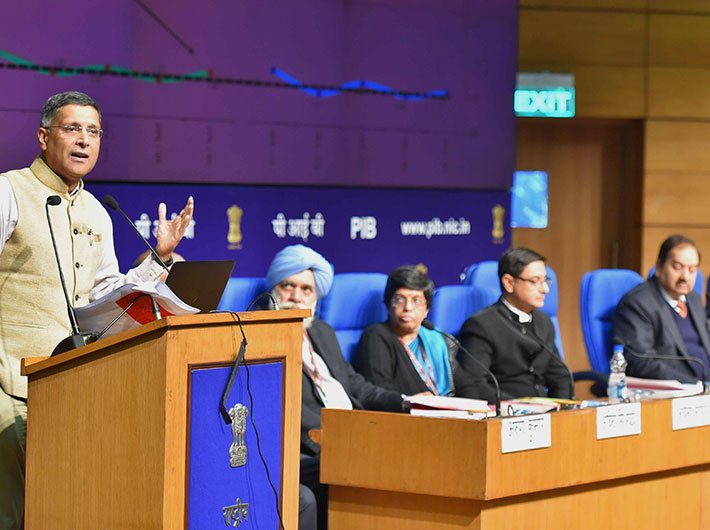To re-ignite growth, raising investment is more important than raising saving, states the Economic Survey
Did you know that there has been a large increase in registered taxpayers, exports of readymade garments is on a high and the Indian society exhibits a strong son ‘meta’ preference? The Economic Survey 2017-18 has listed these and many more interesting facts on the Indian Economy. Following are the 10 facts:
- There has been a large increase in registered indirect and direct taxpayers: A 50 percent increase in unique indirect taxpayers under the GST compared with the pre-GST system. Similarly, there has been an addition (over and above trend growth) of about 1.8 million in individual income tax filers since November 2016.
Read: Economic Survey 2017-18
- Formal non-agricultural payroll is much greater than believed: More than 30 percent when formality is defined in terms of social security (EPFO/ESIC) provision; more than 50 percent when defined in terms of being in the GST net.
- States’ prosperity is correlated with their international and inter-state trade: States that export more internationally, and trade more with other states, tend to be richer. But the correlation is stronger between prosperity and international trade.
- India’s firm export structure is substantially more egalitarian than in other large countries: Top 1 percent of Indian firms account for 38 percent of exports; in all other countries, they account for a substantially greater share (72, 68, 67, and 55 percent of exports in Brazil, Germany, Mexico, and USA respectively). And this is true for the top 5 percent, 10 percent, and so on.
- The clothing incentive package boosted exports of readymade garments: The relief from embedded state taxes (ROSL) announced in 2016 boosted exports of readymade garments (but not others) by about 16 percent.
- Indian society exhibits strong son “Meta” Preference: Parents continue to have children until they get the desired number of sons. This kind of fertility-stopping rule leads to skewed sex ratios but in different directions: skewed in favor of males if it is the last child, but in favor of females if it is not the last. Where there are no such fertility-stopping rules, ratios remain balanced regardless of whether the child is the last or not.
- There is substantial avoidable litigation in the tax arena which government action could re-duce: The tax department’s petition rate is high, even though its success rate in litigation is low and declining (well below 30 percent). Only 0.2 percent of cases accounted for 56 percent of the value at stake; whereas about 66 percent of pending cases (each less than Rs 10 lakhs) accounted for only 1.8 percent of the value at stake.
- To re-ignite growth, raising investment is more important than raising saving: Cross-country experience shows that growth slowdowns are preceded by investment slowdowns but not necessarily by savings slowdowns.
- Own direct tax collections by Indian states and local governments are significantly lower than those of their counterparts in other federal countries: This share is low relative to the direct taxation powers they actually have.
- The footprint of climate change is evident and extreme weather adversely impacts agricultural yields: The impact of weather is felt only with extreme temperature increases and rainfall deficiencies. This impact is twice as large in unirrigated areas as in irrigated ones.
